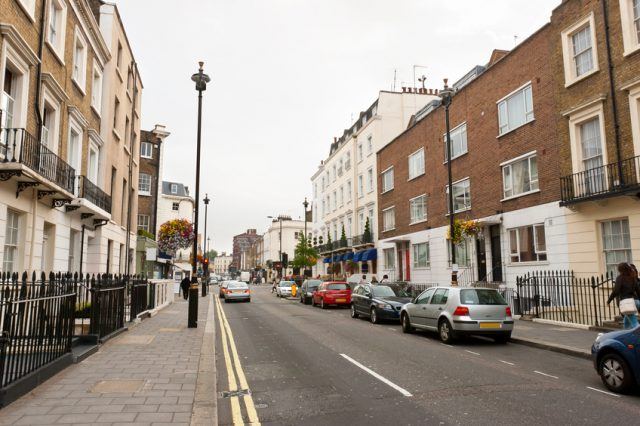Are You a London Landlord? Find Out About the Tenants in Your Area
If you’re a London landlord looking to expand your portfolio, you may be wondering where to invest next. With such a range of areas to choose from, it is vital that you target the right tenants and purchase a property that will suit them. This guide will help you find out more about the tenants in the location you’re considering…
While buying the right rental property is crucial to a successful lettings business, finding good tenants is also essential. Although you may know what makes a good tenant, you may not know where they’re looking to rent.
London estate agent Portico has analysed the profiles of 300 tenants that have moved into two-bedroom properties in the capital over the last couple of months to tell you exactly who’s renting where.
Know your market
Not only is it interesting to find out who’s renting in certain areas, it is vital in helping you choose the right property type to invest in. Many landlords will have an idea of the type of tenant they want to rent to, and what kind of property these renters will look for. It is also extremely useful in terms of knowing how to present your property to achieve the highest rent price.
Camden and Bloomsbury
If you’re looking for a buy-to-let property in Camden or Bloomsbury, it is likely that you’ll let to a student.
A huge 73% of the tenants who recently moved into a two-bed property in Bloomsbury are students, hence the low average tenant age of 28, with 62% of renters in Camden being students. Many students renting in Bloomsbury are foreign students studying at nearby University College London, while a lot of students renting in Camden are at the Royal Veterinary College.
As a landlord, students may not be your first choice of tenant, but Portico has found that letting to students is actually extremely advantageous for landlords, for the following reasons: Higher rental yields; an annual market for new tenants; rent is guaranteed by a parent or guardian; and rent is very promptly paid, usually by direct debit. Students are also willing to pay a premium to be within walking distance of their university, and expect little furniture besides a bed, sofa and desk.
Clapham, Fulham and West Hampstead
Do you want to rent your property to young professionals? Then invest in Clapham, Fulham or West Hampstead.
Clapham and Fulham are part of the south London banker belt, and the buy-to-let sector has certainly benefitted from City workers in the area. The majority of tenants in these locations work in finance – from junior, to mid-level, to senior positions – and both spots have a young average tenant age of 29 (Clapham) and 30 (Fulham).

Are You a London Landlord? Find Out About the Tenants in Your Area
West Hampstead also has a high proportion of young professional tenants working in finance. Those living in NW6 are in more senior positions than renters in Clapham and Fulham, however, and the average salary and tenant age is therefore higher.
Young professionals are typically the most desirable tenants for landlords. They often have university qualifications, a reliable, above average income, and are prepared to pay premium rents to live in a popular area. They also tend to look after the property very well.
However, they do have very specific requirements: Young professionals want to be within walking distance of a Tube station and often expect broadband to come with the property. They are usually looking for one or two-bed, modern properties, and will typically turn a property down if it doesn’t have a washing machine or dishwasher.
Battersea and Dulwich
Battersea and Dulwich often attract older tenants who have moved out of the Clapham area to get more for their money and settle down.
Portico found that those looking to rent a two-bed property were typically professional couples that are thinking of starting a family. Families in these areas are looking to rent larger properties with three or more bedrooms. The average tenant in Battersea is 31, while in Dulwich they are 30. A large number of renters in Battersea work in finance, but an even higher percentage (20%) work in professional services. Dulwich also has a high proportion of tenants working in professional services (22%), including health, education and manual labour.
Although the average tenant salary isn’t as high as in other areas – £42,391 in Battersea and £36,718 in Dulwich – tenants who work in professional services are considered extremely reliable, as they are unlikely to change jobs. They are looking for value for money, so are prepared to live a little further out, and a nearby Tube station isn’t a number one requirement. These tenants also don’t always need a fully furnished property, as they often bring a lot of their own furniture with them.
Acton and Hammersmith
As large areas on the outskirts of London, Acton and Hammersmith attract tenants looking for value for money.
35% of renters in Acton and 25% in Hammersmith work in general business roles, so there are people of all ages in different roles in these areas. Although they are a little further out, both locations offer fantastic transport links, ideal for the large number of tenants commuting to office jobs in the City.
Despite a high average age, tenants in Acton and Hammersmith have low average salaries compared to those renting in other parts of the capital – £30,569 in Acton and £38,060 in Hammersmith. Property types vary massively to suit the range of tenants living in both areas, as do rent prices.
The majority of tenants, however, work long hours with long commutes, so they are looking for modern, furnished rental properties that are easy to clean and maintain. A lot of developments are being built to accommodate these renters, with many offices being demolished and rebuilt as flats.
Highbury and Islington
If you want to attract older tenants with a high disposable income, invest in Highbury or Islington.
Tenants in Highbury have the highest average age, at 35, and the highest average salary, at £62,568. Many of these renters work in finance and general business, the majority of which are managers or in very senior positions. The average salary in Islington is also very high, at £54,424, and the average age is 31. The job range here is more varied however, with a large number of tenants working either in professional services or in general business roles, but also a high proportion of renters are in creative, media roles.
These tenants are prepared to pay a premium to live so centrally in areas with fantastic amenities. They usually look for properties with a bit of character rather than new build flats, and are often happy to accept an unfurnished property.
If you are looking for a new, lucrative investment property, it is crucial that you understand what type of home tenants are looking for in certain areas. With claims that London will prove resilient to the Brexit result, now could be a great time to invest!








